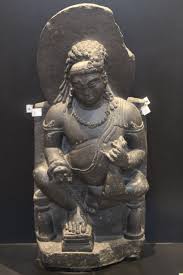| Name ▲▼ | Origin ▲▼ | Description ▲▼ |
|---|---|---|
| Goddess name "Aequitas aka Aecetia" | Roman | Was the goddess of fair trade and honest merchants. Like Abundantia, she is depicted with a cornucopia, representing wealth from commerce. Roman |
| Goddess name "Aje" | Africa | Goddess of wealth who appears as a fowl scratching the earth and was sent down with Oduduwa, the earth goddess. |
| Goddess name "Aje" | Yoruba | Goddess of wealth in all its forms Yoruba |
| Goddess name "Aje" | Yoruba / Nigeria, West Africa | Goddess of wealth. She is thought to appear as a fowl scratching the earth and, in creation mythology, was sent down with ODUDUWA, the earth goddess.... |
| Goddess name "Anumati" | Sanskrit | A lunar deity and goddess of wealth, intellect, children, spirituality and prosperity. Also Anumati is a type of full moon day in which the moon remains slightly cut and not fully full moon called as Chaturdashi bhiddha purnima Sanskrit |
| Goddess name "Ashiakie" | Gan / district around Accra, Ghana, West Africa | Goddess of wealth. The daughter of NAI, god of the sea, she was born in the ocean and came to land in a canoe. Her colors are red and white.... |
| Goddess name "Ashiakle" | Africa | Goddess of wealth. The daughter of Nai, god of the sea, she was born in the ocean and came to land in a canoe. Ghana, West Africa |
| God name "Bhaga" | India | One of the Adityas, a god of wealth and marriage in Hinduism. |
| Demon name "Bishamon-Ten/ Bishamontenno/ Tiamontennu" | Japan | A god of wealth & protector of human life that chases demons |
| God name "Caishen" | China | God of wealth. China |
| God name "Chango" | Africa | A warrior god that Defense morals against enemies that want the land, wealth & women |
| God name "Daikokr" | Shinto / Japan | God of luck. One of seven gods of fortune in Shintoism and often linked with the god EBISU. Originally a god of kitchens, he became a deity concerned with happiness. He is depicted as a fat, well-to-do figure seated on two rice bales and carrying a sack on his back. He also holds a hammer in his right hand. In depictions there is often a mouse nibbling at one of the rice bales. Small gold icons of the god may be carried as talismans of wealth. According to tradition, when Daikoku's hammer is shaken, money falls out in great profusion. In western Japan he is also syncretized with the god of rice paddies, TA-NO-KAMI, and thus becomes the god of Agriculture and farmers. He may have developed from the Buddhist god MAHAKALA.... |
| God name "Daikoku" | Japan | God of wealth and happiness and one of the Seven Gods of Fortune. The god invoked specially by the artisans of Japan. He sits on a ball of rice, holding a hammer in his hand, with which he beats a sack; and every time he does so the sack becomes full of silver, rice, cloth, and other useful articles. Japan |
| God name "Dazhbog" | Slavic | God of the sky, wealth and war. Slavic |
| God name "Dazhbog/ Dabog/ Dazbog" | Slavic | A god of the sky, wealth & war |
| God name "Dei Lucrii" | Roman | Early gods of wealth, profit, commerce and trade. They were later subsumed by Mercury. Roman |
| Goddess name "Dhisana" | Hindu / Vedic | Minor goddess of prosperity. Associated with the acquisition of wealth. Also the name given to a bowl of fermented drink or soma.... |
| Goddess name "Esme" | Welsh | Minor goddess of wealth, also seen as a gracious protector. Welsh |
The God of Wealth, a member of the Taoist pantheon, is one of the most popular deities with the Chinese people of all walks of life. The god, however, varies from period to period, and from place to place. In modern times, there have been legends about a God of Wealth with a civil mien and a God of Wealth with military bearing. Of all the Gods of Wealth, the best-known has been Zhao Gongming, alias Zhao Xuantan. There are also two legends about this deity. One, based on the Feng Shen Yan Yi (Romance of the Canonized Gods), a novel by Xu Zhonglin of the Ming Dynasty (1368-1644), says that a person named Zhao Gongming once made his home in Luofu Cave on Mount Emei, cultivating himself according to Taoist doctrines. After he had attained the Tao, he acquired an immortal frame, extraordinary military skills, a black tiger as his mount and an iron rod as his weapon, complete with two talismansa Sea Calming Pearl and a Dragon-Tying Rope. Then King Zhou of the Shang Dynasty sent for him to help fight Jiang Ziya, the field marshal of King Wen of the Zhou Dynasty. In the battle to break through Jiang Ziya's Ten-Impasse Formation Zhao Gongming inflicted a disastrous defeat on Jiang Ziya. Because Zhao had assisted the tyrant King Zhou in oppressing the people, he was shot to death by arrows. Afraid lest the spirit of the departed should try to seek revenge, the victorious field mar shal honoured Zhao Gongming with the tide of God of Wealth. The Random Notes of Yingkou by Zhu Anren of the Qing Dynasty explain People extend their New Year greetings fit'st of all to the God of Wealtha gilt or coloured image of an eight-foot- tall man, flanked by the Wealth Usher on the left and the Treasure Carrier on the fight. This refers to the God of Wealth held up by rich people and wealthy merchantsa deity with a dark face, bushy whiskers, and iron helmet on his head and an iron rod in one hand, sitting astride a black tiger.

